25 Car Rental South Africa Tips to KNOW

If you plan on getting a car rental for South Africa, you are in for a fantastic time. Having a car in this country gives you ultimate freedom. There’s so much to do and places to explore in South Africa you will want that freedom. South Africa is truly a perfect road trip destination.
We’ve rented a car in South Africa multiple times and think it’s an excellent option for getting around the country as there is not a safe and reliable public transport option.
A car rental in South Africa is an affordable option for getting around, and as long as you’re okay driving on the left side of the road, it is a very ideal option. Here are our best South Africa rental car tips to know before you get there!
Car Rental South Africa Tips
Renting a Car in South Africa is Affordable
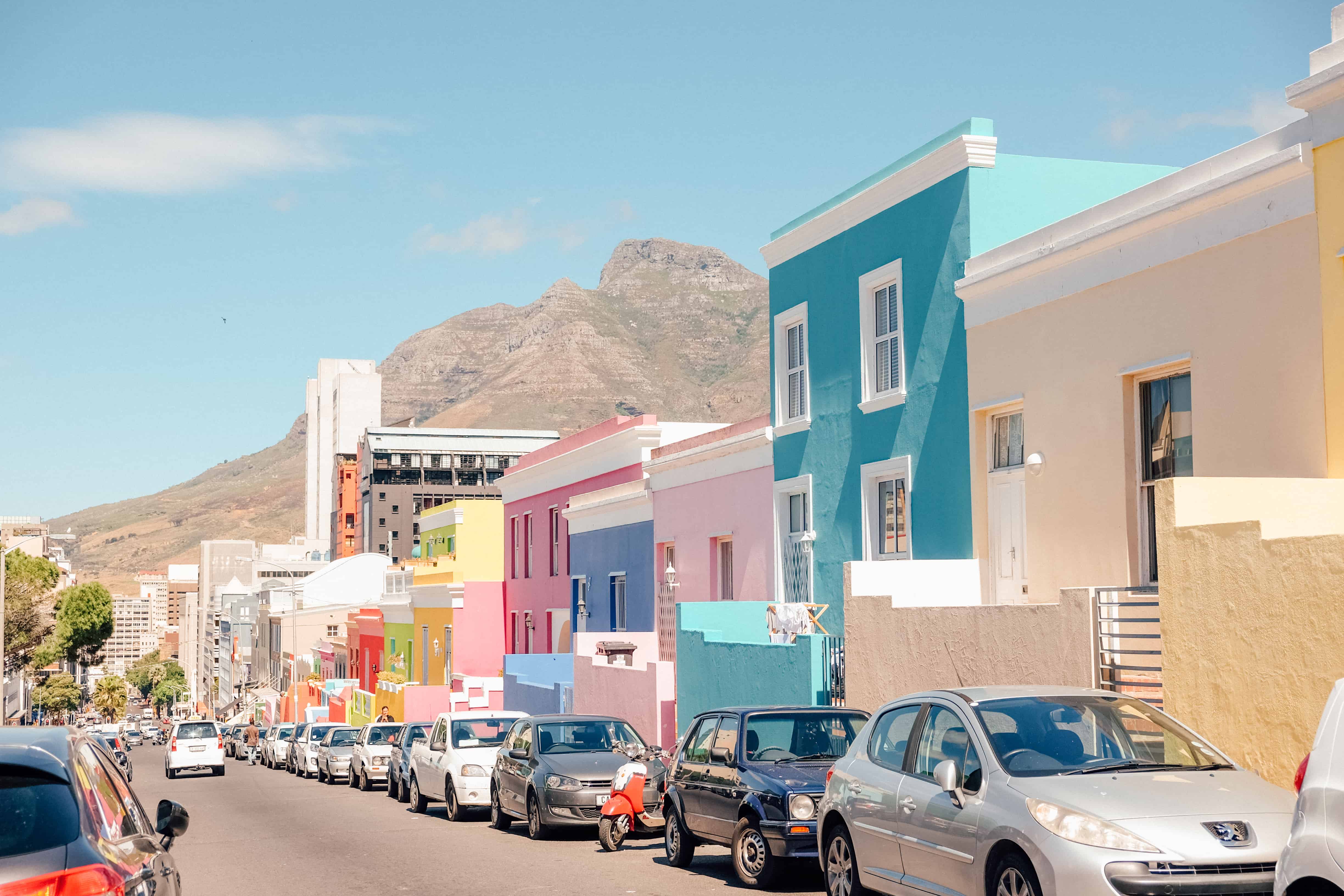
Every time I travel to South Africa, I am reminded of how affordable it is to rent a car there. Seriously, you can get fantastic deals on a rental car in South Africa, especially if you rent in a major city like Johannesburg or Cape Town. Depending on the month, it’s possible to get a car for as low as $10 a day! It’s always best to compare rates on different platforms to get the best deal.
Compare Rates
- Discover Cars: What we use to search rental car prices around the globe.
- RentalCars.com: Provides comparisons for car rentals.
- AutoEurope: I can often find deals here for car rentals, even internationally.
What Car to Rent in South Africa?
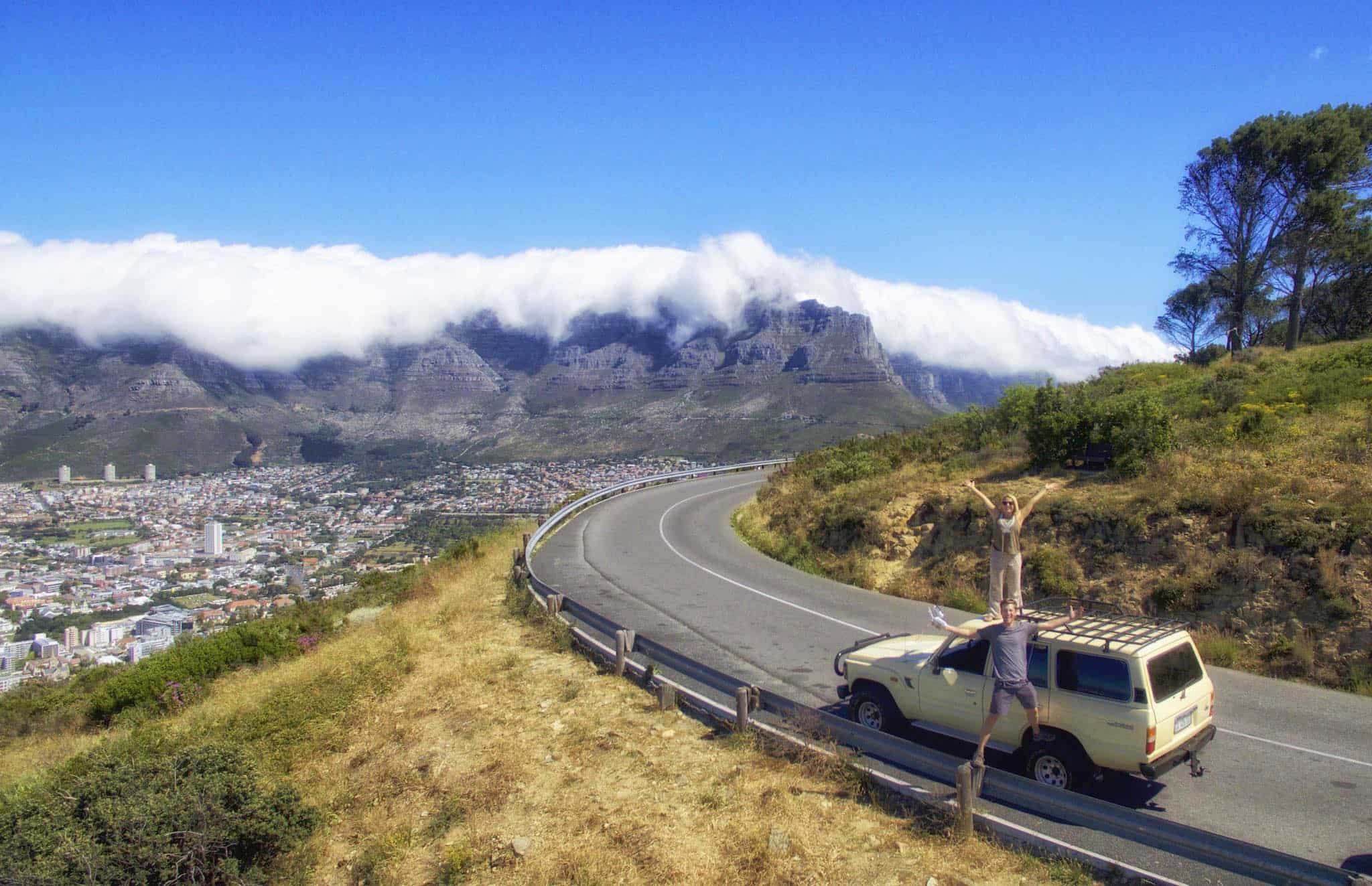
Companies to Rent With in South Africa
We found Hertz and Avis to be the most affordable for a long-term rental but we had the best experience with FIRST, a Sixt affiliate. We also tried out Rent-A-Cheapie in Cape Town and had a mixed experience with them. Read more about things to be aware of when renting a car abroad.
Renting a Campervan in South Africa
If you want a new experience, camping in Africa is a fantastic way to explore. Happy Campers have now launched a branch out of Cape Town. Check them out! We partnered with Happy Campers in Iceland and had a fantastic experience.
4×4 Truck
An extremely popular way to explore Southern Africa is by renting a 4×4 truck. Not everyone has the time, patience, or want to purchase a truck like we did, so you have companies like Bushlore that rent out a fully kitted 4×4.
If you plan to drive into the real African bush like Botswana or Mozambique, this is the way to go but be prepared to spend money as the rentals are expensive. We didn’t need a four-wheel drive vehicle anywhere in South Africa, but once you travel across borders, you’ll want one.
Car Rental Insurance in South Africa

If you have a US credit card or equivalent in another country, it’s possible you already have CDW (collision damage waiver) insurance for rental car coverage and don’t know it! It’s worth it to check your documentation and call your credit card company to find out. It’s even worth considering signing up for a new credit card that does offer this so you don’t have to pay for car rental insurance in South Africa. See our favorite travel credit cards here.
Bringing me to my next point – credit cards with primary rental insurance. The Chase Sapphire Reserve is my favorite travel credit card for many reasons, but the primary rental insurance is one of its best perks (including Priority Pass membership). When you put your car hire on your Chase Sapphire Reserve card you get primary rental car coverage around the world up to $75,000.
Car rental companies in South Africa and around the world love to scare customers and upsell all their insurance packages. You need to make sure if you need it or not before falling victim to their trap. Call your credit card company and always find out before you get to South Africa.
If you don’t have a credit card that covers rental car insurance, it may be worth adding on insurance to your package. That way if there is an accident you won’t be stuck paying for a car hire out of pocket.

Fuel Prices in South Africa
At the time of writing (January 2023), fuel prices in Cape Town cost 23.135 per liter.
Expect a Hold Charge on Your Credit Card
Every single one of our 50 or so rental cars has put a hold on our credit card for the rental period. The “excess charge” as it is called is typically stated in your reservation details, but it is easy to miss. Typically the average holding amount (excluding the rental cost) is around R3000, but this may vary according to your specific rental.
We are aware that they must put this hold on our card, but it can be a huge shocker if you are unsuspecting and end up over your credit limit on your credit card. These excess charges are for scenarios where you disappear with the car and are never seen again, or get in a crash and refuse to pay – things like that.
Inspect Your Rental Car

Often, the rental car agent will ask if you’d like them to show you around the vehicle or whether you’re happy to do it yourself. Always accept the offer of being shown around the vehicle, even if you feel a little silly doing so.
The agent will generally start with the outside of the vehicle, pointing out any bumps or scratches that already exist, make sure all the damages are noted. This will also assure you of the roadworthiness of the vehicle.
On the inside of the vehicle, make sure that before you leave the parking bay, you know how to operate the headlights, indicator lights, and hazard lights. You should also know the location of the windscreen wipers as well.
Make sure you know how to alter the position of the driver’s seat, how the parking brake works (is it a traditional manual one you pull up, or a newer electronic one), and how to engage reverse gear (which often requires you to push a button of some sort first). They will also help you set up the GPS if you’ve opted for one.
Remember that if you’re not happy with anything you see, you should insist on an alternative vehicle. If you find cigarette burns, broken mirrors, or windshield cracks these need to be noted before you leave the parking lot. Take lots of photos of the vehicle before leaving the lot for proof. Otherwise, you could be charged for the damages once you return the rental.
Check car rental rates in South Africa.
Get a GPS, a Sim Card, or Download Google Maps
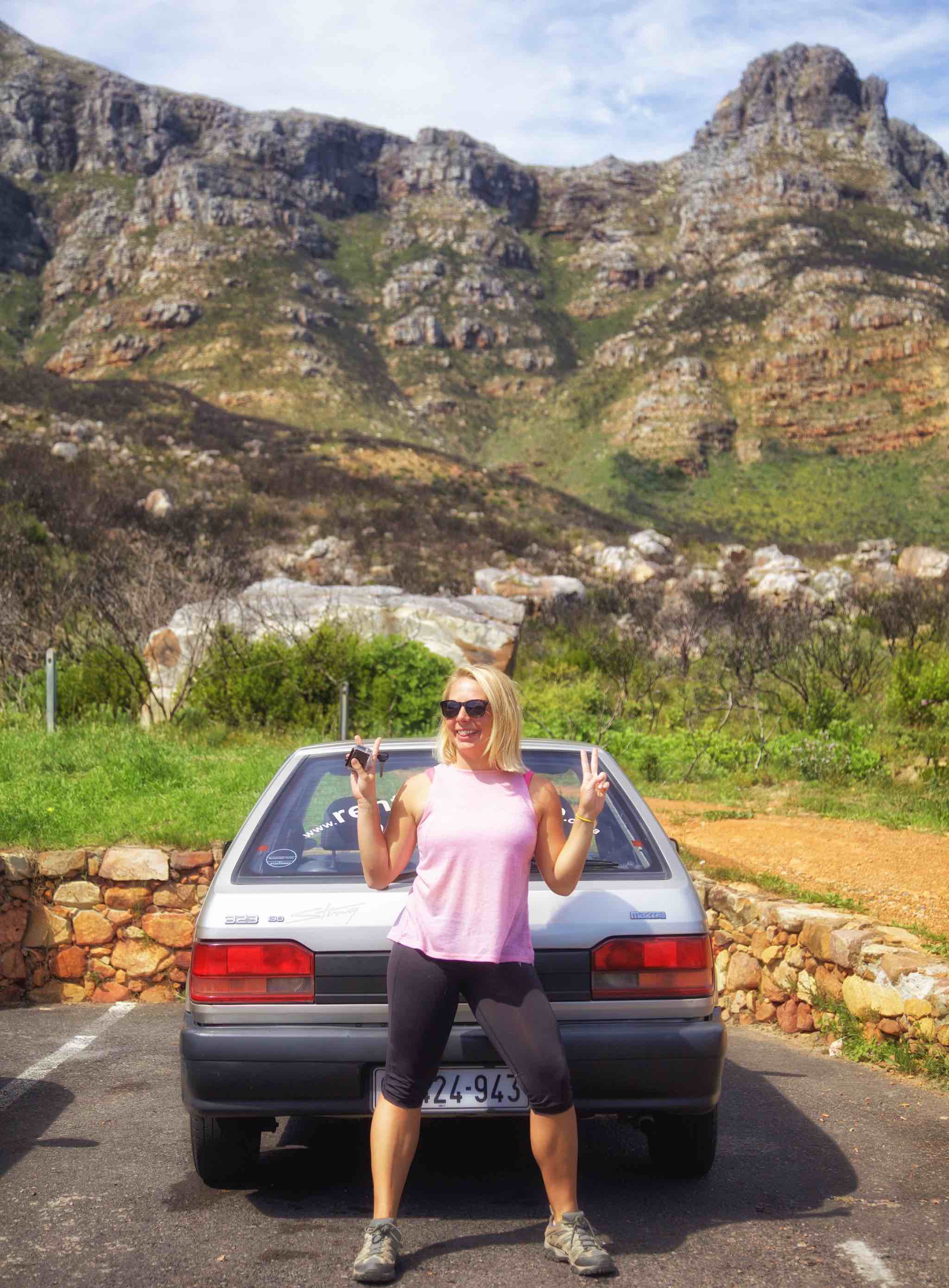
We always pick up a local SIM card when we arrive in a new country. It’s always a good idea to have a working phone in emergencies. We picked up a SIM card with Vodacom in when we landed in Cape Town. That way, we always had data to run a GPS from our smartphone. Or you can always get an eSim with Airalo quickly and easily.
Google Maps is a good GPS option throughout South Africa; you can download the map to your phone while on WiFi. Having a map downloaded to your phone means you don’t need the internet for turn-by-turn directions.
Watch Out For Animals

When traveling around South Africa it’s best to always be on the lookout for all kinds of animals. Whether that’s cows, sheep, chickens, baboons, or goats be on the lookout. The big thing we saw driving in South Africa were goats.
Goats will roam the side of the road and may jump out in the road when you least expect it. If you’re driving in rural areas at night this can be a big issue.
Remember that baboons have hands and fingers, and can easily open a car good if left unlocked. If you are in an area where baboons are present, make sure to lock your car door.
The Roads are Well Paved in South Africa

If you’re continuing on an African road trip after South Africa you better enjoy the roads because they are the best you are going to come across.
The roads in South Africa are, in general, pretty great and comparable to any Western Nation. They are paved and aren’t the pothole-ridden roads you’ll find in many other African nations.
Don’t Let Your Guard Down
You may feel like you’re traveling in a secure country when you’re driving around South Africa, but it’s important to never let your guard down. South Africa can be a dangerous country to drive around. Carjackings and muggings are common and there are some major hazards to be aware when you drive around South Africa. We’ll dig into those below.
Hazards While Driving in South Africa

I won’t sugarcoat it; South Africa is one of the most dangerous countries in the world and Cape Town, Pietermaritzburg, Johannesburg, Pretoria, and Durban rank as one some of the world’s most dangerous and violent cities.
That said, most of the crime in many of the cities occur in townships, which is not where most tourists and visitors will be driving. Still, it’s always important to take caution driving in South Africa, especially at night. Here are some problems you should be aware of in South Africa.
- Minibusses: Many locals use minibusses to get around. These minibusses drive aggressively and will overtake and swerve into your lane at a moment’s notice. They frequently run red lights and drive like there is no tomorrow. Take caution when driving near them.
- Windows: Keep your windows up while driving through city centers, particularly at traffic lights or anytime you are at a complete stop.
- Carjackings: Carjackings are a problem in South Africa, however it’s most prevalent in isolated areas and on secondary roads in Northern KwaZulu-Natal and Zululand. We have never had car jacking issues in the Western Cape, but it’s still important to always be aware of your surroundings.
- Locked Doors: When driving through busy areas it’s worth keeping your doors locked at traffic stops. Always lock your doors when away from the car.
- Valuables: Keep valuables out of sight, especially at night. When parking your car overnight, remove all valuables from the vehicle, even if you are parked in secured parking. It’s not worth the risk of walking out to a smashed window in the morning. Thieves will break a window for just 100 Rand.
- Nighttime Driving: It’s best to keep nighttime driving in South Africa to a minimum. .
- Look Both Ways: This is more of a tip for when you are a pedestrian, but it’s always important to look both ways before crossing any street in South Africa. Don’t rely on a light to tell you when to walk. We saw multiple drivers run red lights while walking across the street in South Africa.
- Don’t Pick Up Hitchhikers: We get it, you have an extra seat in your car and want to be a nice guy. In South Africa, it’s not worth taking the chance. Never pick up hitchhikers.
- Kruger National Park: Be careful around Kruger National Park gates, particularly Numbi Gate as carjacking and muggings have happened here. Just recently a tourist was shot dead as he tried to enter the park.
- Parking Garages: When available, always opt to park in a secure garage rather than on the street – especially at night. If there is no parking garage to park at, at least opt for a well lit street. Though most places in the city center have secure parking nearby.
- People Everywhere: While driving in South Africa you always have to be aware of people. No matter how rural you get, there are often men, women, and children walking on the sides of the road. Children is emphasized as many children walk to and from school every day and can carelessly step into the road. Take caution.
- People at Intersections: Speaking of people everywhere, you’ll need to be aware of people at intersections in major cities like Cape Town and Johannesburg. Buskers, beggars, and all types of people hang around at major intersections with hopes of a donation. Sometimes they don’t clear the street when traffic starts moving here.
Take Caution at Night
I would advise against driving at night in South Africa if possible. This is when most of these muggings and carjackings occur, especially if you aren’t in a great neighborhood. Be extra aware of your surroundings at night, always lock the door, and be wary when stopped at stoplights at night.
At night it’s essential throughout many parts of South Africa that your car is not subject to getting boxed in. This is how thieves and car jackers trap drivers.
Hide Any Valuables

I should mention one more time to hide your valuables when you are driving and when the car is parked. That means zipping up backpacks, putting valuables in the trunk, and covering things like cameras with clothing items and blankets. Thieves are opportunistic, and there’s no reason to give anyone an incentive to break in.
South Africa Car Scams

There are still dangers to be aware of when inside your vehicle. South Africa is no stranger to car scams, many of them are violent. It’s unlikely anything will happen to you if you are just on a short holiday in South Africa. However, there are still just a few to be aware of.
- The most common is for thieves to wait at intersections and on highway off ramps, when you are stopped they will approach the car and attempt to rob you.
- If you see someone lying in the middle of the road, or see large debris in the middle of the road to not stop to help or move the debris. Don’t get out of the car to move it, or help the person. Chances are it’s a scam and they are just waiting for you to get out of the car to hijack it and leave you stranded (or worse).
- If you get a flat tire or your vehicle suddenly breaks down, put on your hazards and remain in the car with the doors locked. If it’s at night, keep driving for as long as possible, even if it’s on the rim until you can get to a well-lit safe area or a police station. Call your car rental South Africa company for road side assistance.
- If you see someone broken down on the side of the road, don’t stop to offer help. It’s just not worth the chance that it’s a scam. Instead call the police and notify them of the accident.
- If you get pulled over and the police demand you pay a fine on the spot, request to drive to the nearest police station and pay it there. Police in Africa and commonly known to extort bribes out of drivers.
Don’t Fill Up Your Own Gas
It’s not common to fill up your own gas in South Africa. There will always be a gas station attendant to fill up your car just like the good old days. They will often ask if you want your windows cleaned too. There’s no reason to ever get out of the car when filling up.
It’s expected to tip those lovely gas station attendants that fill up your car and clean those windows. South Africans usually tip anywhere from 2-5 ZAR, but tourists seem to tip more around 10 ZAR. Any amount is acceptable!
Leave Your Car Rental South Africa with Car Attendants
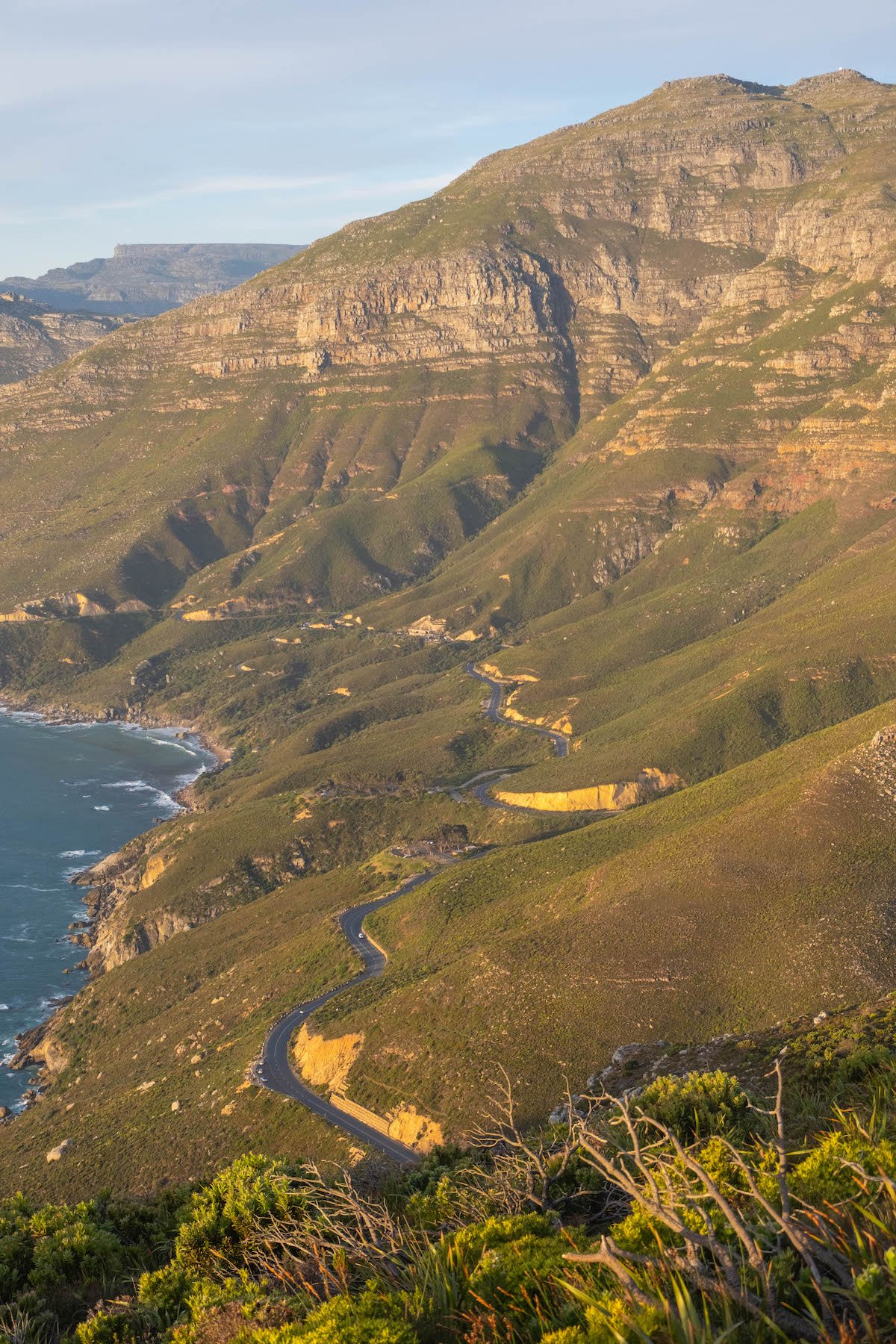
In South Africa, it’s widespread to have car attendants outside grocery stores, restaurants, and other businesses – (yay, job creation).
Almost anywhere you park in South Africa that is not in a paid garage is usually monitored by a “car guard” to ensure that vehicles remain safely parked while you go and do your business.
Sometimes these car guards are officially hired by an establishment, or sometimes they throw on a yellow vest and just stand outside a business, hoping to collect enough rand for a meal. As a tourist, it’s hard to know!
These guys are there to watch your car and “deter” car thieves. Sometimes they help you park in a spot or back out of place. Many times we found the “help” was unnecessary.
These guys expect a tip; often, 2-10 ZAR is more than enough. Sometimes if you don’t tip them, they will try and block your car with their body until you give them something.
Now, all that being said, it’s up to you if you want to help them out a little with some money. As mentioned, we have spent more than three months living in Cape Town, and two additional months around South Africa, and have become accustomed to these car guards.
If we felt they truly assisted us and watched our car while we were away, we had no problem tipping them 10 rand. However, often we would return to our car, get in, pull out of the parking spot just to have someone run up behind us and act like they were watching the car the whole time.
Most of the time, their effectiveness was questionable at best (hence the quotation marks). However, we often felt bad and would give food or a few rand because of this. Unemployment is high in South Africa, and a few rand might mean a little to us but a lot to others.
That said, it’s up to you and your discretion to tip car guards. It is in no way obligatory.
Prepare for Toll Roads
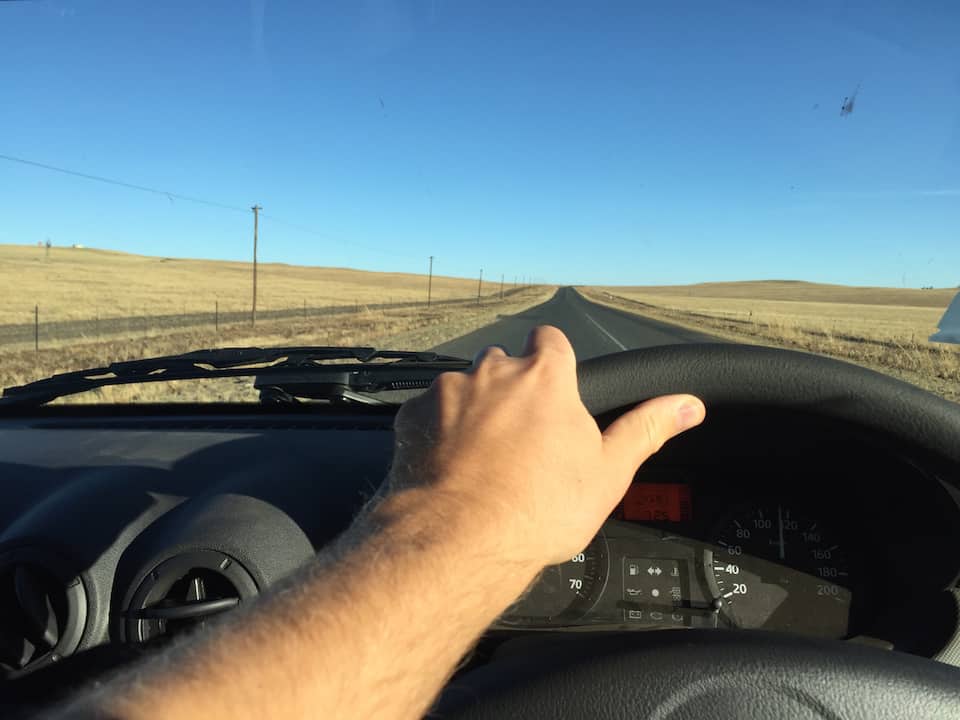
If you plan on doing a big South Africa road trip you need to prepare for toll roads. Most South African rental cars will already have a system set up in the car so you don’t have to do anything, but it’s still best to have some extra rand on you at all times just in case.
Crossing South African Borders

Most car rental companies in South Africa will allow you to drive your car over the border. That opens up a whole world of travel to Mozambique, Lesotho, Swaziland, and Namibia.
Just make sure to tell them your travel plans as you will need a letter from the vehicle owner (ie the rental agency) stating that you can drive across the border. Almost all rental car companies charge anywhere from $50 to $150 per border crossing letter, and it is necessary to have. Border control always checks for it.
Check for Restricted Mileage

Make sure that your South Africa rental car has unlimited mileage before signing your contract! If you plan on doing a lot of driving across South Africa, a car with restricted mileage will severely limit you or cost an arm and a leg once you go over and start getting charged per kilometer. South Africa is bigger than it may seem and distances are far apart.
Drive on the Left-Hand Side in South Africa
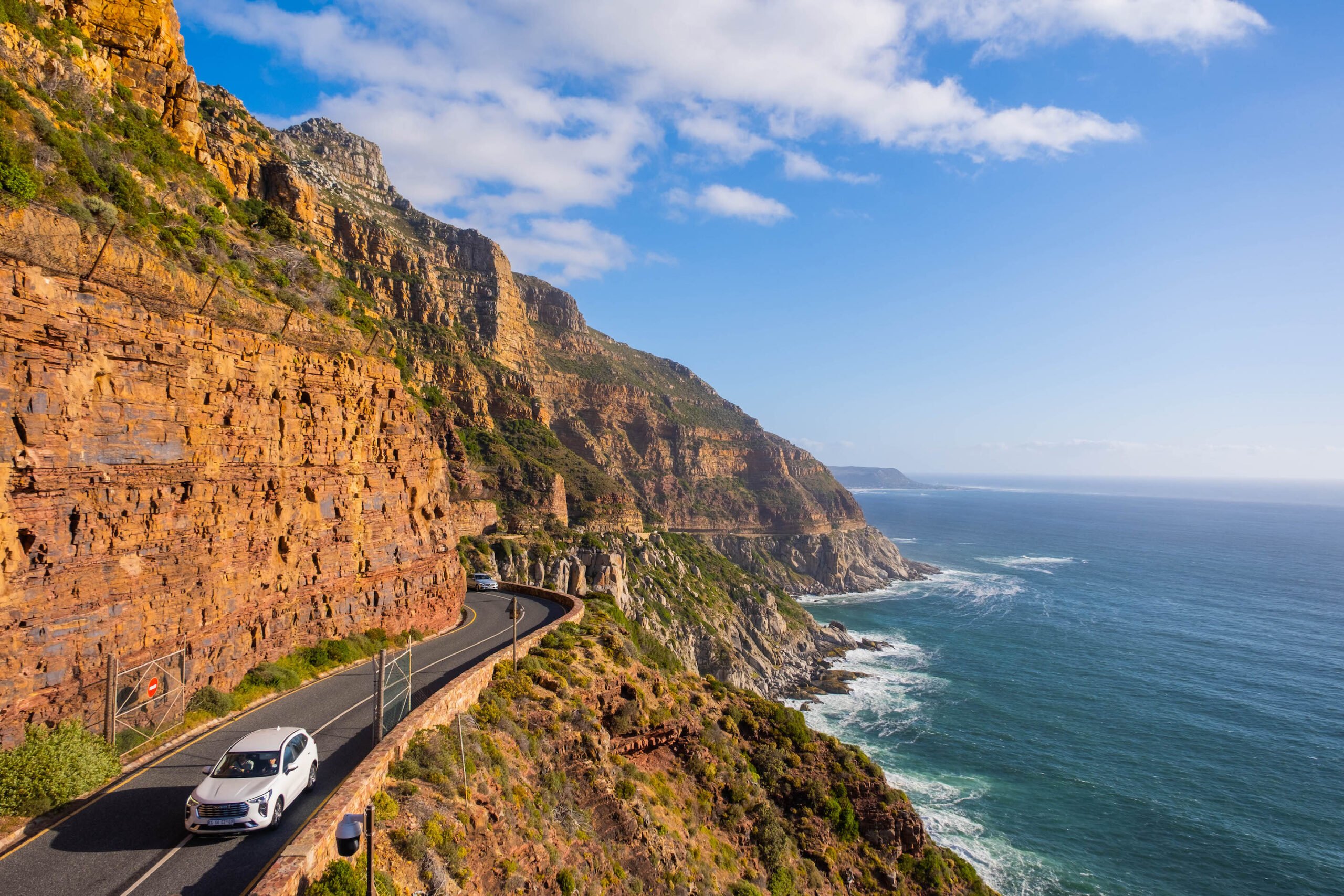
Depending on where you are from, you could be driving on the ‘wrong’ side of the road in South Africa. That is on the left-hand side of the road rather than the right, like in North America. That means the steering wheel is on the other side of the vehicle to what you may be used to, with the gear shift (in manual transmission vehicles) and parking brake on the opposite side to you as well.
That said, the pedals are in the same order as in the US, with the clutch on the left (for manual vehicles), foot brake in the middle, and gas pedal on the right.
There’s Always Uber
If you don’t feel comfortable driving around the cities, Uber is a very popular option. In cities like Johannesburg, Pretoria, and Cape Town, Uber is everywhere and it is very affordable!
South Africa is a Great Place to Road Trip
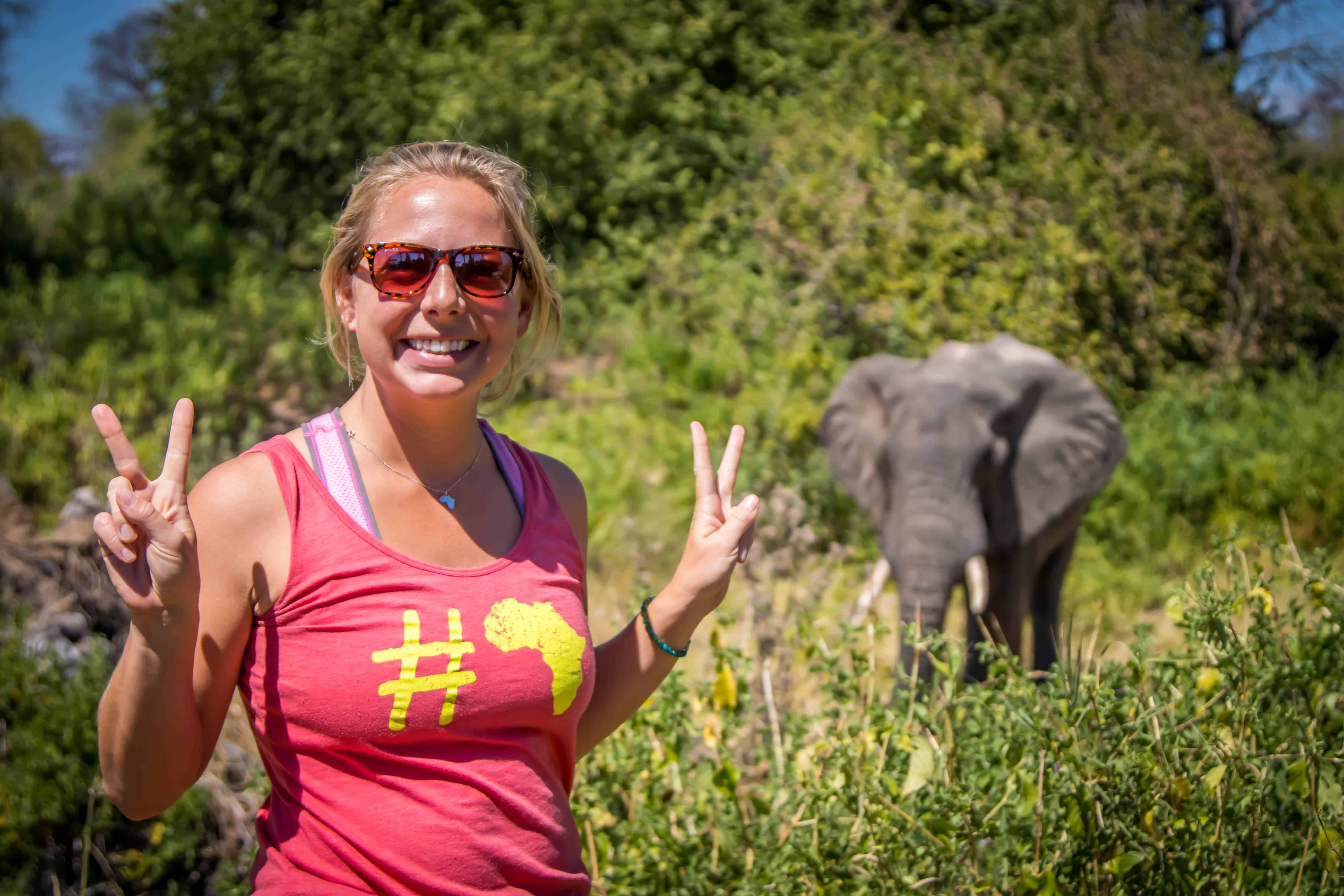
All in all, South Africa is an awesome place to road trip! We spent three months in South Africa traveling to all the best places and hope to return one day and do it all again. There is so much to see, so much to do, and the best part of all is you can road trip South Africa on a modest budget!
Book A Safari in South Africa

Traditionally if you wanted to book a safari you’d have to go to a travel agent and have them book your safari for you. They made suggestions for camps and lodges then presented you with a large bill. Most of the industry still operates in this fashion.
However, Timbuktu is a new platform that allows you to select the lodges you’d like and see the pricing per day that way you can select the best itinerary for yourself. They will then contact the lodges and help you through booking your safari. With experts on staff, they can also provide suggestions and arrange the little details much like a travel agent.
What to Pack for an African Safari
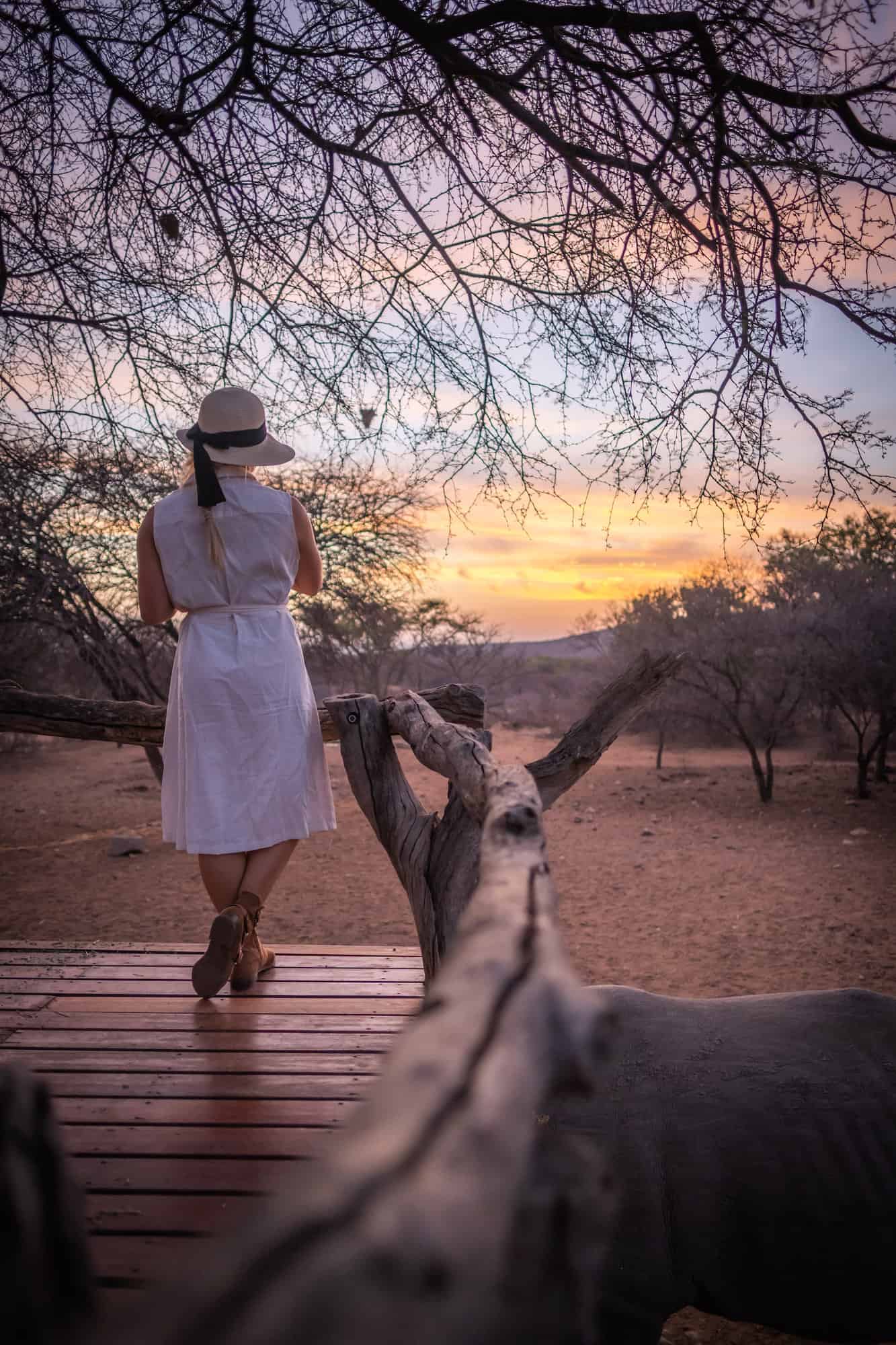
Packing the right safari clothes is always a good idea, but it’s never essential because you can wear whatever you want. We also go in-depth on the best women’s safari clothes!
Our Recommendation For Travel Insurance

We don’t travel without travel insurance, and neither should you. You never know what can happen in a foreign country, and it’s best to be prepared. HeyMondo offers excellent short and long-term travel insurance policies.
Plan Your Trip to Africa
- Travel Insurance: We don’t travel without travel insurance and neither should you. You never know what can happen while traveling so it’s best to be prepared. HeyMondo provides excellent short-term and long-term travel insurance plans.
- Travel Waterbottle: When we’re uncertain about the water supply we use our Grayl Purifier. It’s come in exceptionally handy around Africa.
- Camera Gear: Chances are you’ll want a camera for your trip to Africa. We love the Sony RX100V for a pocket-size camera and the Fujifilm XT-4 for a professional camera. Check out our favorite cameras for Africa.
- Safari Clothes: Lightweight, beige, and moisture-wicking clothing are great for traveling Africa. See our favorite safari clothing here.
- Safari Hat: A good hat is both stylish and functional.
- Safari Bag: A durable bag is ideal for traveling around Africa.
- Safari Pants: We recommend neutral-colored pants as they’re great at hiding dirt and can match most shirt colors.
- Safari Shirt: Shirts like these are lightweight and keep the bugs away!
- Boots: While you don’t need to wear sturdy shoes every day, at least one pair of safari boots will make your trip nicer!
- Travel Adapter: You’ll need a special travel adapter for traveling to Africa. Get one before you get there so you don’t pay a premium on the ground.

